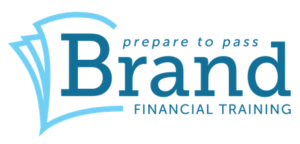In the latest of their regular articles for Professional Paraplanner, covering exams and training, the Brand Financial Training team examine pensions IHT relief and intergenerational planning, and whether the current beneficial rules will stand up to fair tax scrutiny.
As we are all aware, the UK tax system has been volatile, to put it mildly, in recent times. Over the last few months, we have gone from the abolition of additional rate tax to its reinstatement at a reduced threshold and next year will see cuts in the dividend allowance and the annual exempt amount for capital gains tax.
The latter is a point of particular interest given that the capital gains regime has been the target of criticism from the Institute for Fiscal Studies (IFS) in recent years. And now, the influential think tank appears to have switched its sights to the Inheritance Tax (IHT) relief applying to funds held within a pension plan.
As any practicing adviser will be aware, there has been a trend in recent times towards advising clients to make pension contributions for legacy planning purposes. Following the pension freedoms in 2015, in addition to the Income Tax benefits conveyed (Income Tax relief on contributions and 25% of the fund available as a tax-free pension commencement lump sum), pension funds are treated much more beneficially from an estate planning perspective.
Fundamentally, an uncrystallised defined contribution pension scheme, or unused flexi-access drawdown funds, can be left to a dependant, nominee or successor completely free of IHT (assuming they are not subject to a nomination which is binding on the trustee). What’s more, if the owner of the funds dies before reaching the age of 75 then any payment (be it an income or a lump sum) will be free of Income Tax, subject to the constraints of the lifetime allowance. This is provided, of course, that it is designated within the necessary two year window.
Whilst the saying goes that the only certainties in life are death and taxes, this scenario is a true rarity. It allows a pension pot to be passed in a manner which is completely legal and completely free of taxes. If the owner is over the age of 75 at the time of death then an Income Tax charge is made on withdrawal by the beneficiary. But even this may well prove to be less than the 40% rate of IHT. The treatment certainly compares favourably to the 55% tax charge which was imposed on pension death benefits prior to the freedoms in 2015.
Not that clients or advisers have a complete open goal in this respect. Form IHT409 does ask for details of any pension contributions made in the two years prior to death. It is possible that HMRC may seek to include such contributions as part of the estate where:
- the contributions exceed what would normally be paid by the client;
- the contributions were made in the knowledge of serious ill health;
- it appears that the primary purpose for the contribution was the avoidance of IHT.
Notwithstanding this, for contributions made whilst in good or reasonable health, it is rare that HMRC would seek to challenge their validity.
Recently, however, the IFS published a paper titled ‘Death and taxes and pensions’ in which it called for reform to the system. The paper stated the following:
‘Where an individual dies before age 75, funds remaining in their pension escape income tax entirely – there was income tax relief when the money was paid into the pension and no income tax when the money is taken out. Furthermore, any funds that remain in a pension at death (at any age) are not subject to inheritance tax. This results in the bizarre situation where pensions are treated more favourably by the tax system as a vehicle for bequests than they are as a retirement income vehicle. As such, there is a large incentive, for those who can, to use non-pension assets to fund their retirement while preserving their pensions for bequests’.
The paper reached a series of conclusions, which can be summarised as follows:
- Pensions are being increasingly used as a vehicle for bequests;
- Basic-rate Income Tax could straightforwardly be levied on all funds that remain in pensions at death. Alternatively, current Income Tax rules could extend to those inheriting pension pots from someone who dies before age 75;
- Pension pots should be included in the value of estates at death for the purposes of IHT.If we are to have a tax on inheritance at all, it should apply evenly across all forms of wealth;
- Subjecting pensions to IHT would raise revenue and remove the ‘perverse incentive’ to avoid using a pension to fund retirement;
- If the government did not want this change to increase the overall yield of IHT, it could use the revenue to cut the IHT rate and/or increase the threshold;
- Reforms should be announced as swiftly as is practical.This would reduce the extent to which individuals will have saved in a pension in the incorrect expectation that they will be able to bequeath these funds under the current generous arrangements.
Now let’s be honest, as financial planners, most of us have been ‘guilty’ of this. Either in the form of advising clients to make pension contributions to take funds outside of the estate, or advising them to draw funds from IHT-liable alternatives such as ISAs or general investment accounts before the pension. And why shouldn’t we? It is a non-contentious tax break offered by the government and it is simply good financial planning to ensure your clients are advised to maximise tax benefits which are offered perfectly legally.
However, reluctantly, we have to concede that the IFS may have a point about products which were intended as retirement funding vehicles increasingly being primarily used as an IHT avoidance tool.
Worryingly, the report also claims that it is ‘inevitable’ that there will be some degree of retrospective taxation, as is often the case in matters involving HMRC. However, it claims that this is hard to avoid and that it is justified in order to fix what it considers an anomaly within the system.
It remains to be seen how this one will play out. But it is worth noting that the IHT system has already been on the radar for the Office of Tax Simplification recently. Advisers and paraplanners may wish to proceed with caution when making future pension planning recommendations.
About Brand Financial Training
Brand Financial Training provides a variety of immediately accessible free and paid learning resources to help candidates pass their CII exams. Their resource range ensures there is something that suits every style of learning including mock papers, calculation workbooks, videos, audio masterclasses, study notes and more. Visit Brand Financial Training at https://brandft.co.uk






























